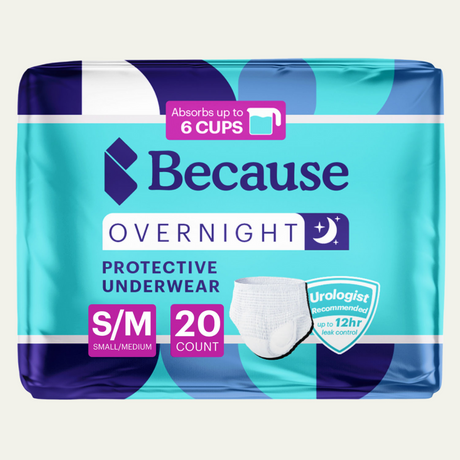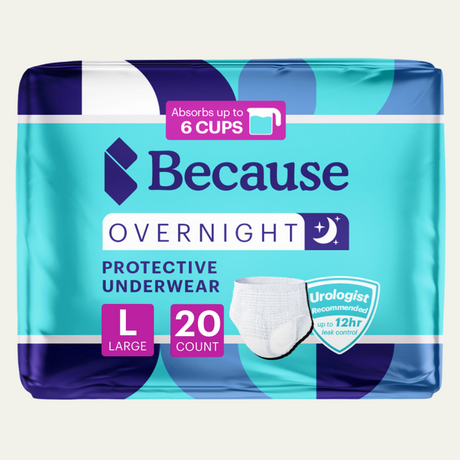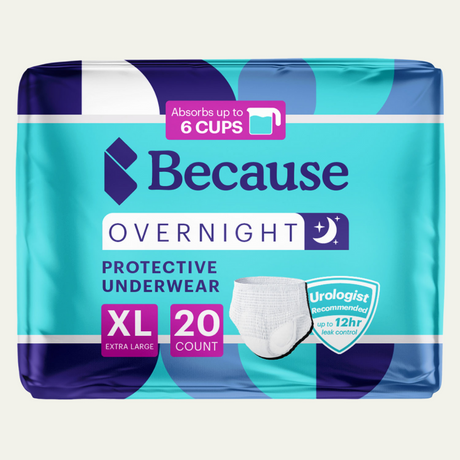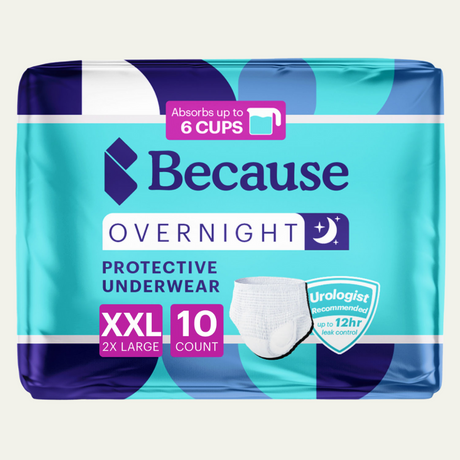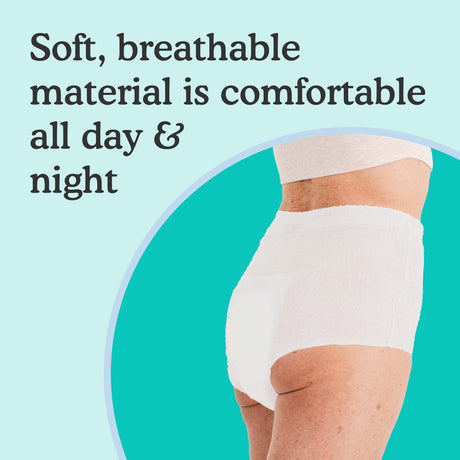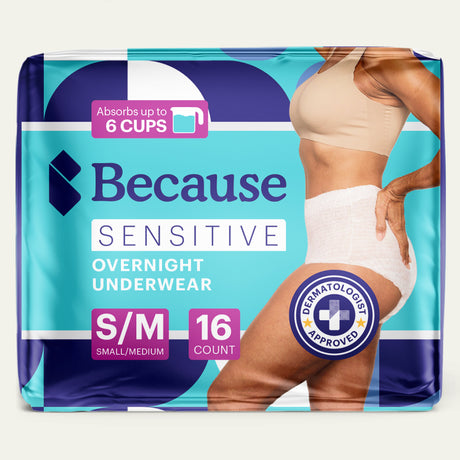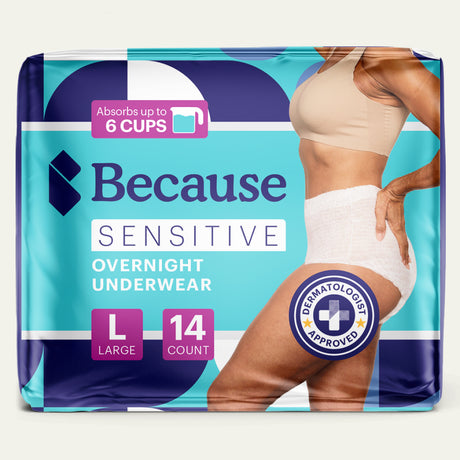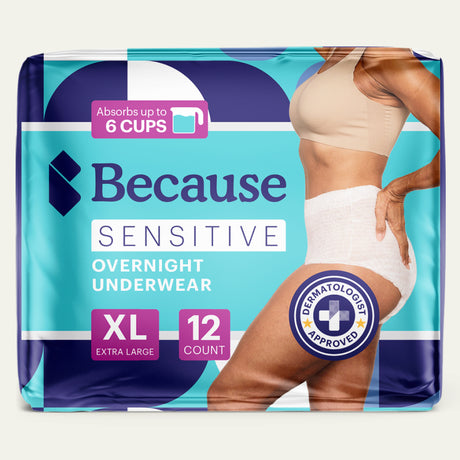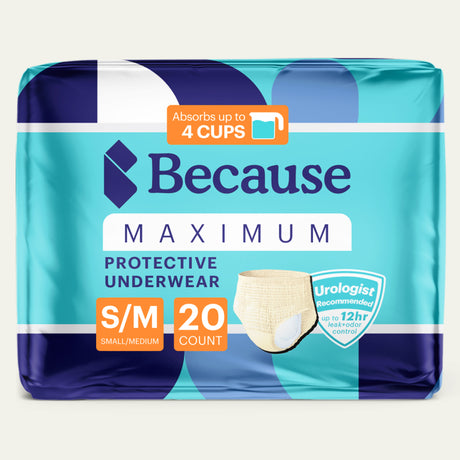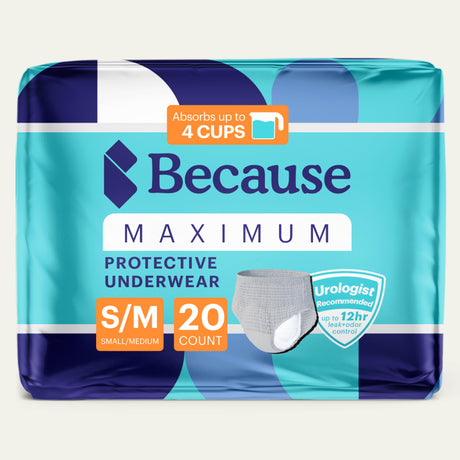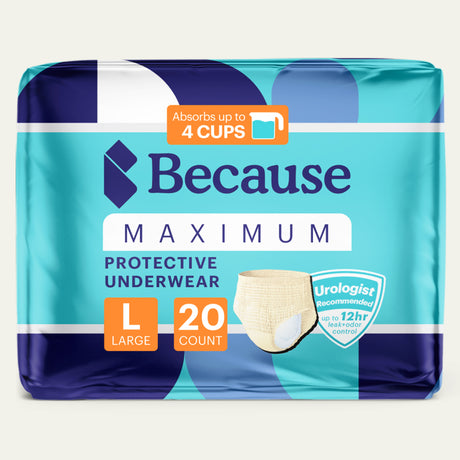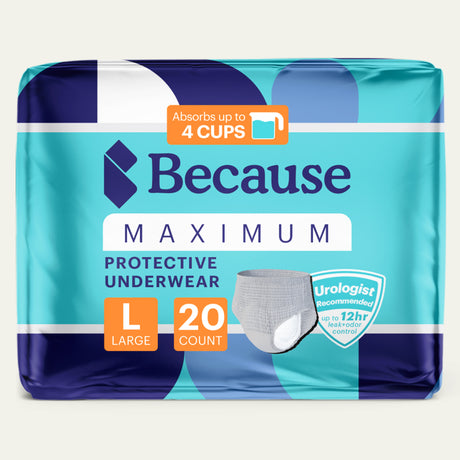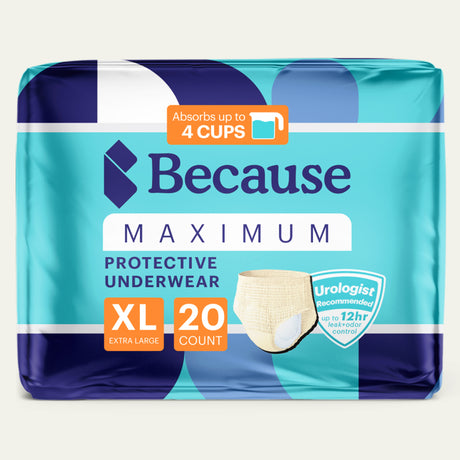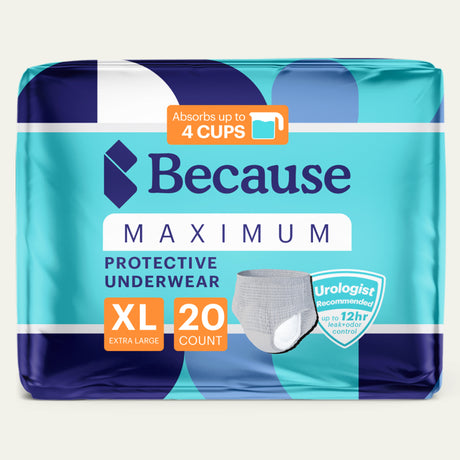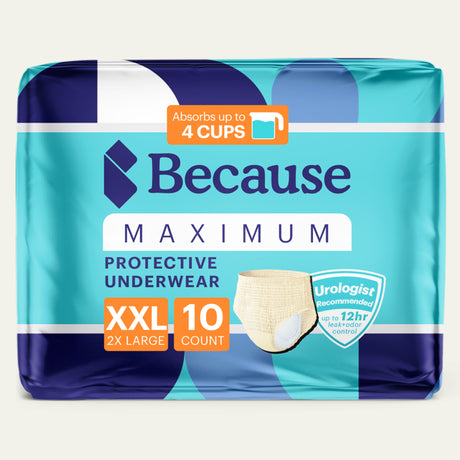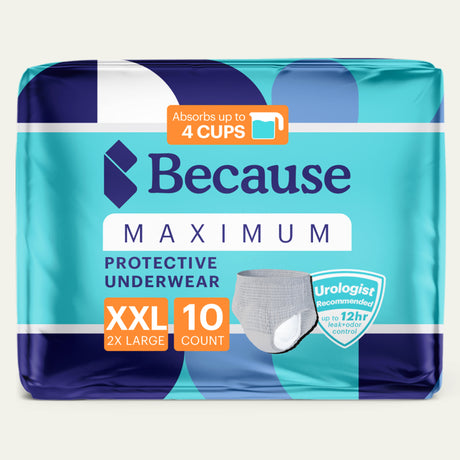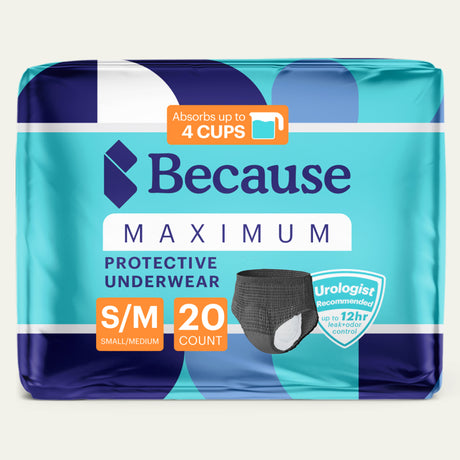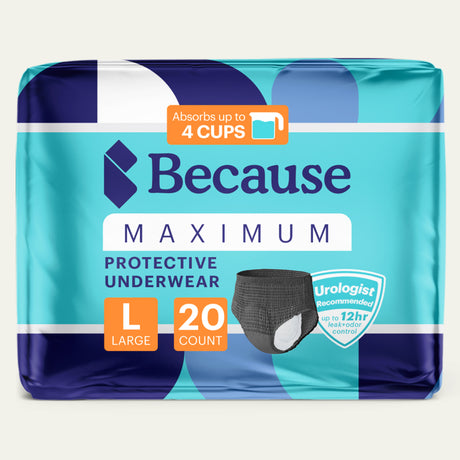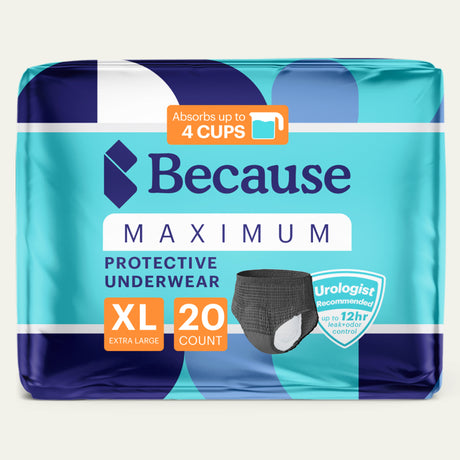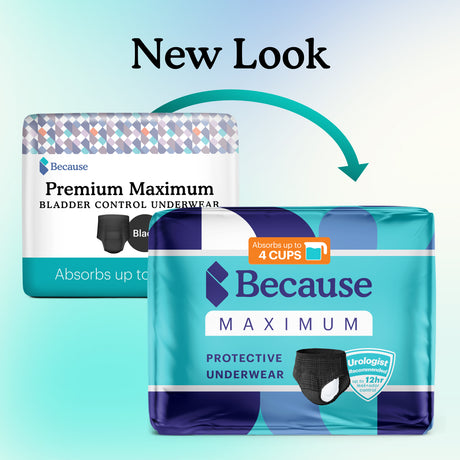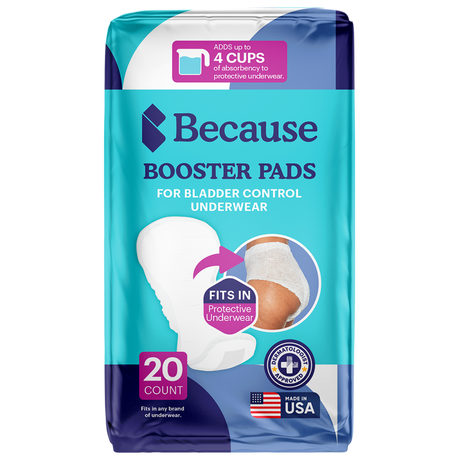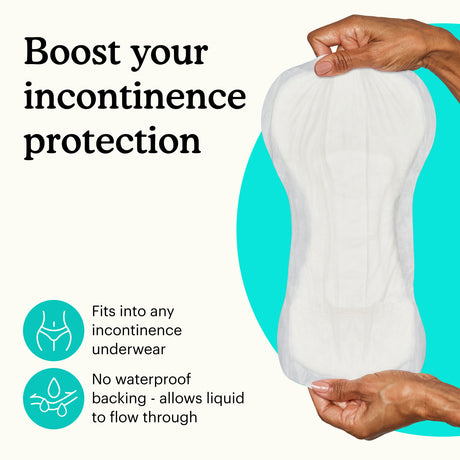Managing incontinence in any situation requires planning and support, and a hospital stay is no exception. This guide provides a roadmap for navigating bladder health in a hospital setting, offering practical tips and resources to help you feel more comfortable and in control. We'll cover essential packing lists, discuss how to communicate effectively with your healthcare team, and offer advice on maintaining discretion and hygiene. We'll also explore the emotional impact of incontinence and provide resources for ongoing support, both during and after your hospital stay. Because Market is committed to providing you with the information and tools you need to manage incontinence with confidence and dignity.
Key Takeaways
- Prepare for a comfortable hospital stay: Packing your own incontinence supplies, along with essential skincare and odor control products, ensures you maintain a consistent routine and minimizes discomfort during your hospital visit.
- Advocate for your needs: Open communication with your healthcare team is crucial. Discuss your incontinence with your nurses and doctors to ensure they understand your needs and can provide appropriate support and resources.
- Seek support and resources: Connect with organizations like the National Association for Continence (NAFC) and the Simon Foundation for Continence for valuable information, support networks, and guidance on managing incontinence effectively.
What Are Hospital Policies for Incontinence Management?
Hospital policies regarding incontinence management prioritize patient comfort, dignity, and hygiene. While specific procedures vary between facilities, you'll generally find similar practices centered around providing essential supplies and personalized care.
Debunking Myths About Personal Products
One common misconception is that bringing your own incontinence supplies to the hospital is discouraged. This isn't true. Hospitals do supply incontinence products, but they might not stock your preferred brand or absorbency level. Using unfamiliar products can increase the risk of leaks and discomfort, especially during a stressful time. Bringing your own ensures a consistent routine and helps maintain a sense of normalcy. Another myth is that using personal incontinence products creates extra work for hospital staff. In reality, your familiarity with your own supplies can often streamline care, making changes and personal hygiene routines easier. Open communication with your nurses about your preferences is key.
Hospital-Provided vs. Your Incontinence Supplies
Hospitals typically provide basic incontinence products like pads and catheters. The quality and availability of these supplies can vary.The standard practice is to provide a three-day supply upon admission, unless the patient is in end-of-life care. However, these standard-issue products might not suit everyone. They might not offer the right absorbency, fit, or features you're accustomed to. This is where bringing your own supplies becomes invaluable. Having products you know and trust can significantly improve comfort and reduce anxiety during your hospital stay. Packing your preferred incontinence products allows you to maintain consistency and manage your needs effectively, regardless of hospital-provided options.

Pack Your Incontinence Supplies for a Hospital Stay
Bringing your own incontinence products to the hospital can significantly improve your comfort and reduce anxiety. While some hospitals might stock basic supplies, having your preferred products ensures a seamless experience. This section outlines what to pack and how to pack it for a smooth hospital stay.
Essential Items
Think of packing your incontinence supplies like packing for a short trip. Your essentials bag should include:
- Your preferred incontinence products: This could be incontinence underwear, pads, or guards. Don't forget any specialized items like booster pads or liners you typically use. Check out Because Market's selection of incontinence underwear for high-quality options.
- Skincare products: Hospital environments can be dry. Pack a gentle cleanser, moisturizer, and barrier cream to protect your skin from irritation.
- Wipes: Incontinence wipes are essential for maintaining hygiene and freshness. Choose pH-balanced wipes that are gentle on sensitive skin.
- Odor control products: Small, discreet odor eliminators can help you feel more confident. Consider packing individually wrapped disposal bags as well.
- Change of clothes: Accidents happen. Packing a few extra sets of comfortable clothing, including underwear and pajamas, provides peace of mind.
How Much to Pack for Uncertain Stays
Determining the right amount of supplies can be tricky, especially if the length of your hospital stay is uncertain. A good rule of thumb is to pack enough for twice the estimated duration. For example, if you anticipate a two-day stay, pack enough for four. If possible, have a loved one ready to bring additional supplies if your stay is extended.
Packing for Easy Access and Discretion
Organize your supplies for easy access. A small, dedicated tote bag or clear plastic bin can be helpful. This allows you to quickly locate what you need without rummaging through a larger suitcase. Consider packing individual "change kits" containing everything needed for a single change. This simplifies the process and maintains discretion, especially in shared rooms.

Communicate Your Needs Effectively
Open communication with your healthcare team is crucial for managing incontinence during a hospital stay. Don't hesitate to advocate for your needs—it's their job to ensure your comfort and well-being. By clearly communicating your needs and concerns, you can ensure a more comfortable and dignified experience.
Discuss Incontinence with Hospital Staff
While hospital staff are trained to care for patients, they may not always fully grasp the specifics of your incontinence needs. Research shows that standard admission procedures sometimes miss the mark when it comes to continence care. For example, one study found that "pro-forma hospital admission assessment procedures insufficiently captured continence care needs." Read the full study for more insights. Another study highlighted the persistence of urinary incontinence among psychiatric inpatients, emphasizing the need for mental health providers to promptly address this issue. Be proactive. Inform your nurses and doctors about your incontinence, its severity, and any specific products you use. This helps them understand your situation and provide appropriate care from the start.
Request Accommodations
Don't be shy about requesting accommodations that can make your stay more manageable. You can request assistance with toileting, a bedside commode, or inquire about specific incontinence products.It’s also a good idea to set up a commode or a regular toileting schedule with staff assistance. These simple adjustments can significantly improve your comfort and reduce anxiety.
Build Confidence and Overcome Embarrassment
It's understandable to feel embarrassed about incontinence, but remember, healthcare professionals are there to support you. They've seen it all before and are focused on providing the best possible care. A research article published in Nursing in Critical Care underscores the importance of effective communication, especially for patients with limited mobility. Expressing your needs clearly empowers you and allows the staff to provide appropriate support. Remember, managing incontinence effectively is a team effort, and your voice is essential.
Manage Incontinence During Your Hospital Stay
Managing incontinence during a hospital stay can feel challenging, but proactive steps can significantly improve comfort and confidence. Here's how to take control of your bladder health while receiving medical care:
Establish Toileting Schedules
A consistent toileting schedule can be incredibly helpful in managing incontinence. Talk to your nurse about setting up a regular bathroom break schedule. This could involve timed voiding, where you go to the bathroom at set intervals, even if you don't feel the urge. This can help retrain your bladder and reduce the likelihood of accidents. If getting to the bathroom is difficult, ask if a bedside commode can be provided. Having a readily available option can make a big difference in maintaining continence and minimizing disruptions.
Use Hospital Resources
Hospitals are well-equipped to handle incontinence, so don't hesitate to utilize the resources they offer. Incontinence products like absorbent pads and undergarments are typically readily available. If you're unsure about what products are best for you, ask your nurse or a continence advisor. They can help you find the right fit and absorbency level for your needs. Catheters are another option for managing incontinence in a hospital setting, especially after surgery or if mobility is limited. Your medical team can discuss whether catheterization is appropriate for your situation.
Maintain Comfort and Hygiene
Maintaining comfort and hygiene is essential when dealing with incontinence. Change your incontinence products frequently to stay dry and prevent skin irritation. If you experience any discomfort or notice skin redness, inform your nurse immediately. They can provide barrier creams or other solutions to protect your skin. Don't be afraid to ask for assistance with changing products or cleaning up after an accident. Hospital staff are there to help, and maintaining your hygiene is a priority for their care. Open communication about your needs is key to ensuring a comfortable and dignified hospital stay.
Manage Shared Rooms and Medical Procedures
Hospital stays can be stressful, and managing incontinence adds another layer of complexity, especially when dealing with shared rooms and medical procedures. However, with some planning and communication, you can maintain your comfort and dignity.
Maintain Privacy in Shared Spaces
Sharing a hospital room might feel like a loss of privacy, especially when managing incontinence. However, there are ways to maintain discretion and comfort. Pack a small, dark-colored bag specifically for your incontinence products. This allows for easy access and discreet trips to the bathroom. If possible, request a bedside curtain to be drawn for changing or bathroom breaks. Communicate your needs to your roommate politely; most people are understanding and will respect your privacy. Remember, using incontinence products is nothing to be ashamed of. It's a common issue, and most people will be empathetic. Consider packing a few odor-control products, like those available from Because Market, to help maintain a fresh scent. This can help alleviate any anxieties you might have about odors. You can find more tips for discreetly managing incontinence here.
Manage Incontinence Pre- and Post-Procedure
Medical procedures often require specific preparations that can impact incontinence management. Before your procedure, inform your medical team about your needs. They can advise on the best course of action, which might include using specific products or adjusting medication schedules. Empty your bladder immediately before the procedure to minimize discomfort and potential accidents. After the procedure, understand that some procedures may temporarily affect bladder control. Ask your nurse about appropriate incontinence products and assistance. Don't hesitate to use the call button if you need help with toileting or changing. The hospital staff is there to support you. Open communication with your healthcare team is key to managing incontinence effectively during your hospital stay.
Address Emotional and Psychological Aspects
A hospital stay can be stressful, and managing incontinence can add another layer of complexity. It's completely normal to experience a range of emotions, from anxiety and frustration to embarrassment and even a sense of loss of control. Addressing these emotional and psychological aspects is just as important as managing the physical symptoms. Remember, you're not alone, and support is available.
Cope with Anxiety and Stress
Anxiety and stress are common companions of incontinence, especially in a hospital setting. The unfamiliar environment, medical procedures, and potential for accidents can heighten these feelings. Practicing relaxation techniques like deep breathing or mindfulness can help manage anxiety. Guided meditation apps can be incredibly helpful, offering calming exercises you can do right from your hospital bed. If your anxiety feels overwhelming, don't hesitate to talk to a nurse or doctor. They can offer support and may suggest additional resources, like a hospital social worker or counselor.
Build a Support Network
Leaning on your support network can make a significant difference during this time. Talk to your loved ones about your feelings and concerns. Sharing your experience can lessen the burden and provide emotional comfort. If you're comfortable, let them know how they can help, whether it's bringing you comforting items from home or simply offering a listening ear. Connecting with others who understand what you're going through can also be incredibly validating. Online support groups and forums focused on bladder health can provide a sense of community and shared experience.
Because offers private incontinence support groups for men and women with incontinence.
Join our Women’s Incontinence Support Group
Join our Men’s Incontinence Support Group
Maintain Dignity and Self-Esteem
It's essential to remember that incontinence doesn't diminish your dignity or self-worth. It's a medical condition, and like any other health issue, it deserves compassionate care and understanding. Focus on maintaining your self-care routine as much as possible, even in the hospital. Simple things like brushing your teeth, combing your hair, and applying lotion can help you feel more like yourself. Pack comfortable clothing and personal items that bring you comfort. Remember, you deserve to feel good about yourself, regardless of your health challenges. If you're struggling with feelings of shame or embarrassment, consider talking to a therapist or counselor. They can provide professional support and help you develop coping strategies.

Use Technology and Tools
Technology plays a significant role in enhancing patient care and comfort during a hospital stay, especially for those managing incontinence. Understanding these advancements can empower you to advocate for your needs and ensure a more positive experience.
Advanced Hospital Beds and Communication
Modern hospital beds often incorporate sophisticated technology designed to improve communication between patients and caregivers. For example, some beds have built-in sensors that can detect moisture, indicating an incontinence episode. These sensors can trigger an alert system, discreetly notifying nurses of the need for assistance. This helps maintain patient dignity while ensuring prompt attention. Additionally, some beds feature integrated call buttons and communication panels, allowing you to easily connect with staff for assistance with toileting or other needs. These advancements minimize response times and contribute to a more comfortable and secure environment.
Assistive Devices
Beyond advanced beds, hospitals often provide assistive devices to help patients manage incontinence more effectively. These can include bedside commodes, urinals, and elevated toilet seats. These tools promote independence and reduce the risk of falls when getting to the bathroom. Furthermore, some hospitals offer specialized absorbent products designed for added comfort and protection. Don't hesitate to discuss these options with your healthcare team to determine which assistive devices best suit your individual needs. By understanding the available technology and tools, you can actively participate in your care and ensure a more comfortable and dignified hospital experience.
Plan Discharge and Follow-Up Care
Leaving the hospital, whether after a short stay or a longer one, requires planning, especially if you’re managing incontinence. Thinking ahead ensures a smooth transition and helps you maintain comfort and confidence back at home. This involves coordinating with hospital staff, gathering necessary supplies, and considering strategies for long-term continence improvement.
Ensure Adequate Supplies at Home
Before you head home, confirm you have enough incontinence supplies to last until your next shopping trip or delivery. This includes products like incontinence underwear, pads, or guards, along with skin cleansers and barrier creams. If a specific product worked well for you in the hospital, ask your nurse or doctor about samples or where to buy it. Check your supply of odor control products, too. Having plenty of supplies at home reduces stress and lets you focus on recovery.
Continence Improvement Strategies
Your hospital stay can be a good time to reassess your continence management strategies. Talk to your doctor about potential next steps. This could include pelvic floor exercises (Kegels), dietary changes, or medication. They can also refer you to a specialist, like a urologist or a pelvic floor physical therapist. Don't hesitate to ask about lifestyle adjustments that could improve bladder control, such as managing fluid intake or bladder training techniques. Managing incontinence is an ongoing process, and professional guidance can significantly improve your quality of life.
Find Additional Resources and Support
Managing incontinence, whether temporary or ongoing, can feel overwhelming. You're not alone, and many resources offer information, support, and guidance. Connecting with others and learning more about incontinence can significantly improve your comfort and confidence.
The internet offers a wealth of information, but stick to reputable sources. Organizations like the National Association for Continence (NAFC) offer evidence-based information, practical tips, and access to support networks. These organizations can help you understand the different types of incontinence, treatment options, and lifestyle adjustments that can make a difference.
Beyond online resources, connect with your healthcare provider. They can offer personalized advice, diagnose underlying medical conditions, and recommend appropriate treatments or therapies. If you're feeling isolated or struggling emotionally, talking to a therapist or counselor can provide valuable support and coping strategies. Mental health professionals can help you process any feelings of embarrassment or anxiety related to incontinence.
Finally, remember the power of community. Support groups, both online and in person, can connect you with others who understand your experience. Sharing experiences and tips with peers can create a sense of belonging and reduce feelings of isolation. The NAFC can often help you locate support groups in your area. Don't hesitate to reach out—building a support system is key to managing incontinence effectively.
Related Articles
- Coping with Stroke Incontinence: Practical Tips & Strategies
- Managing Urinary Incontinence After Prostate Surgery
- Managing Bowel Incontinence After Gallbladder Surgery
- 6 Common Types of Urinary Incontinence Explained
- How to Deal with Elderly Incontinence: A Guide for Caregivers
Frequently Asked Questions
What if I'm embarrassed to discuss incontinence with hospital staff?
It's completely understandable to feel embarrassed, but remember, healthcare professionals are there to support you. They've seen it all before and are focused on providing the best possible care. Open communication is key to ensuring you receive the right support. If it helps, you can write down your needs beforehand or bring a trusted friend or family member to the appointment.
What should I do if the hospital doesn't have my preferred incontinence products?
While hospitals aim to provide essential supplies, they might not always stock your specific brand or type. Bringing your own ensures a consistent routine and helps maintain a sense of normalcy. If you run out, ask your nurse or doctor if they can order your preferred products or if they have suitable alternatives available. A family member or friend can also bring you additional supplies from home.
How can I manage incontinence during medical procedures?
Inform your medical team about your incontinence needs before any procedure. They can advise on preparations, such as using specific products or adjusting medication schedules. Empty your bladder immediately before the procedure. Afterward, understand that some procedures may temporarily affect bladder control, so ask your nurse about appropriate products and assistance.
What if my hospital stay is longer than expected, and I run out of supplies?
Pack enough supplies for twice the estimated duration of your stay. If possible, have a loved one ready to bring additional supplies if needed. You can also ask your nurse or doctor if the hospital can provide more products or if they can help you order more.
What resources are available to help me manage incontinence after I leave the hospital?
Organizations like the National Association for Continence (NAFC) offer valuable resources, including information on incontinence types, management strategies, and support networks. Your healthcare provider can also recommend specific treatments, therapies, or lifestyle adjustments. Don't hesitate to reach out to these resources for ongoing support and guidance.
Sources:
Percival, J., Abbott, K., Allain, T., Bradley, R., Cramp, F., Donovan, J., McCabe, C., Neubauer, K., Redwood, S., & Cotterill, N. (2020). "We tend to get pad happy": A qualitative study of health practitioners’ perspectives on continence care for older people in hospital. medRxiv. https://doi.org/10.1101/2020.12.05.20234690
Martin, L., Rabinowitz, T., & Montague, P. (2012). Urinary incontinence in inpatient psychiatry: prevalence, change and relationship to length of stay. Journal of clinical nursing, 21(15-16), 2219–2227. https://doi.org/10.1111/j.1365-2702.2011.03862.x
Trad, W., Flowers, K., Caldwell, J., Sousa, M. S., Vigh, G., Lizarondo, L., Gaudin, J., Hooper, D., & Parker, D. (2019). Nursing assessment and management of incontinence among medical and surgical adult patients in a tertiary hospital: a best practice implementation project. JBI database of systematic reviews and implementation reports, 17(12), 2578–2590. https://doi.org/10.11124/JBISRIR-D-19-00110


